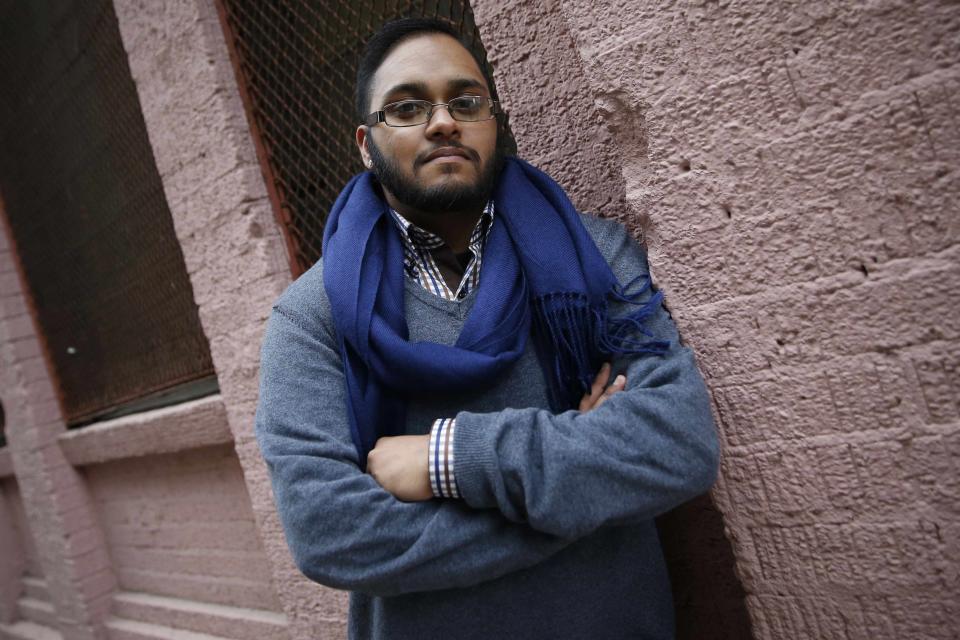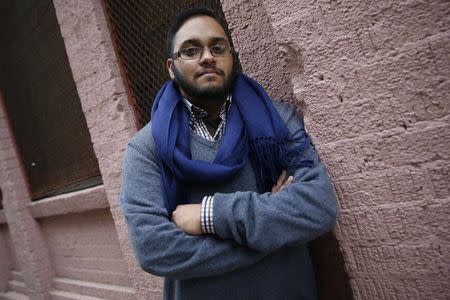U.S. transgender people welcome easier path to amend birth papers
By Jonathan Allen NEW YORK (Reuters) - Naz Seenauth's driver's license says he is male. His birth certificate says he is female. The mismatch, he says, is deeply frustrating. New York City, where Seenauth was born and raised, does not accept that he is a transgender man and will not amend his birth certificate, for now at least, even though his doctor will attest to his gender. "It was kind of weird," Seenauth said of his failed attempt to get the document reissued last year, "because New York City is such a liberal place." This has led to uncomfortable moments for Seenauth, an easy-going 20-year-old interested in information technology and counseling work. When applying for jobs, he has to spend an awkward minute or two before handing over his identify documents to explain himself, hoping to preempt an interviewer's confusion. He is studying for a bachelor's degree in criminal justice and wants to apply to graduate schools, but worries whether admissions officers will look kindly upon a birth certificate that contradicts who he says he is. In the same vein, thousands of transgender people across America have been forced into embarrassing encounters with bureaucrats, officials, landlords and others because of discrepancies with their documentation, according to transgender-rights advocacy groups. Last month, New York City officials announced that they would try to change the law to let people such as Seenauth alter the sex on their birth certificate. If successful, the city would join a growing movement that views gender as a complex, mainly mental phenomenon in which a person's external anatomy is no longer the overriding factor. In theory, most parts of the country, except Tennessee, Ohio and Idaho, already allow transgender people to amend their birth certificates, according to Lambda Legal, an advocacy group. In practice, most jurisdictions, including New York City, ask for proof from a doctor that they have had surgery to alter the appearance of their genitals. This excludes the majority of transgender men and women. In a 2008 survey of more than 7,000 transgender people, only 20 percent of trans women said they had had surgery to remove their penis and testes, and only 2 percent of trans men said they had had male genitals surgically created. Some say they cannot afford the complex surgery. Many others, including Seenauth, do not need or want it, finding hormone therapy sufficient. Besides the usual risks of major surgery, it leaves the person infertile, and some find the results less than satisfactory. Even some people who have had surgery find the requirements intrusive, arguing that few non-transgender people would tolerate civic officials questioning them about their genitalia. OUTDATED RULES Corey Johnson, the City Council member leading the effort to loosen the city's 43-year-old rules, calls the surgery requirements outdated. "I look at this as a matter of human rights," he said in a telephone interview. "Transgender people deserve to have vital documents, especially birth certificates, that accurately reflect their identity." He expects the council to pass his bill before the year is out. He is working in tandem with the city's health commissioner, Dr. Mary Bassett, who has proposed amending the city's health code to match Johnson's bill. Under the new proposals, a transgender person need only submit an affidavit from a doctor, nurse, counselor or other licensed health worker testifying that the applicant is indeed of the gender they claim. In 2006, the Board of Health unexpectedly scrapped a similar proposal after a last-minute volley of concerns that hospitals, jails and schools would not know where to put transgender people. Johnson thinks those concerns have faded. The only feedback he has seen are notes of gratitude from transgender New Yorkers. Some said they have been waiting for this change for decades. "I do think public sentiment has changed for the better in these intervening eight years," he said. In that time, California, the District of Columbia, Oregon, Vermont and Washington have all dropped the surgery requirement. New York state followed suit earlier this year, although this did not affect New York City's independent records system. In 2010, the federal government began allowing transgender people to amend their passports regardless of anatomy. Last year, the American Psychiatric Association said it no longer considered being transgender a disorder. For Seenauth, who plans to address public hearings on the proposals later this month, a change in the city's law would help ease the long, laborious process of transitioning. In the last couple of years, he has legally changed his name from Nazifa to Naz. He had his driver's license amended, and the Social Security Administration updated his records without fuss. And the registrar's office at John Jay College obliged Seenauth's request to update their records. Each step in gaining official recognition of his identity leads to the next one, he says, but there are others besides the city's vital records office that still doubt him. His parents, with whom he lives, "tolerate" his transition, he said, but still call him Nazifa and refer to him using female pronouns. In recent weeks, a man at his local mosque has started to protest Seenauth's entering the men's section to pray. Seenauth is considering asking the imam to intervene. If New York City were willing to recognize him as a man, he said, it might mean that his parents, his imam and others may come to see him that way, too. (Fixes typos in 4th and 6th paragraphs) (Editing by Frank McGurty and Diane Craft)




